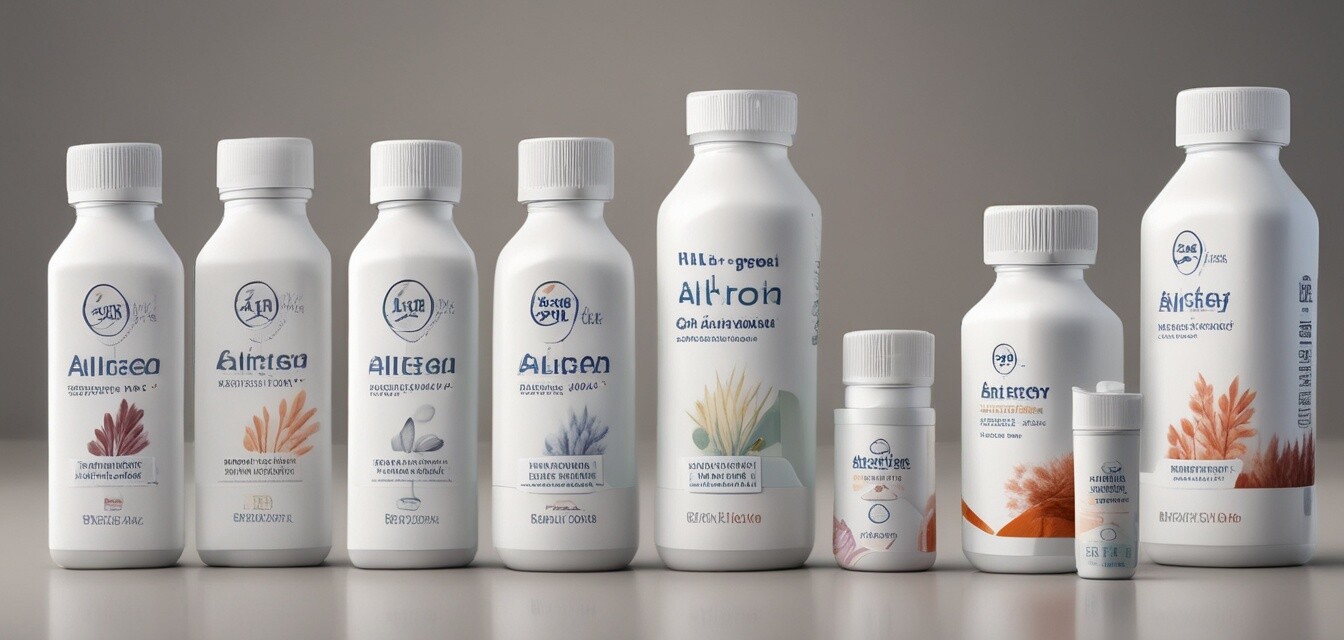
Allergy Medications of 2025: What’s New?
- New formulations of allergy medications are set to offer enhanced relief.
- Active ingredients have been updated to improve effectiveness.
- Understanding these new developments can empower better treatment decisions.
- Stay informed about the impact of seasonal patterns on allergies.
As we progress into 2025, the landscape of allergy medications is evolving rapidly. Advances in research and technology are leading to exciting new products that aim to provide effective relief for those suffering from seasonal allergies. In this article, we’ll explore what’s new in the world of allergy medications, including innovative formulations and the active ingredients that could shape your treatment plan.
New Trends in Allergy Medications
The allergy medication market is continuously innovating, driven by research aimed at understanding the complexities of allergic responses. With the arrival of 2025, let’s take a look at some of the emerging trends and what they mean for allergy sufferers:
- Simplified formulations: New medications boast fewer active ingredients while maintaining efficacy.
- Personalized treatments: Tailored approaches based on individual profiles are gaining traction.
- Holistic therapies: Products combining traditional and alternative ingredients are becoming mainstream.
New Active Ingredients
With innovative approaches comes the introduction of new active ingredients. Some of these ingredients have shown promise in initial research and are now being incorporated into new medications. Here are some noteworthy additions:
| Active Ingredient | Description | Potential Benefits |
|---|---|---|
| Active Ingredient A | Description of the ingredient's function | Potential benefits of this ingredient |
| Active Ingredient B | Description of the ingredient's function | Potential benefits of this ingredient |
| Active Ingredient C | Description of the ingredient's function | Potential benefits of this ingredient |
Seasonal Patterns and Their Impact
One important aspect to consider when using allergy medications is the seasonal patterns of allergens. In 2025, it is crucial to stay informed about how pollen counts and seasonal changes can impact your health. Understanding these trends can empower you to make more informed choices about the type of allergy medications you choose:
- Spring: Grass pollen levels rise, increasing the need for medications focused on respiratory relief.
- Summer: Weeds become prevalent, prompting considerations for longer-term therapies.
- Fall: Mold spores may peak, leading to a different approach in allergy management.
staying Ahead of the Trends
As we move through the years, keeping an eye on the latest news and trends is essential. Here are some strategies for staying informed:
- Subscribe to reputable health publications and journals that focus on allergy research.
- Attend webinars and conferences related to allergy treatments and advancements.
- Engage with online communities and forums where individuals share their experiences and updates.
- Visit our News and Trends section for continuous updates on allergy medications and solutions.
The Future of Allergy Medications
As the focus on allergy medications continues to evolve, embracing innovation and staying informed will be key to providing the best care. The advancements seen in 2025 show promise for improved treatment options and better quality of life for allergy sufferers. Understanding product formulations, new active ingredients, and seasonal patterns will empower you to make informed choices regarding your health.
Conclusion
With new allergy medications set to emerge in 2025, it’s important to stay updated and educated about these changes. Understanding the significance of innovations in formulations and active ingredients will allow you to navigate through your allergy treatment plan more effectively. Remember, knowledge about seasonal impacts can also shape your strategy against allergies.
Tips for Allergy Management:
- Monitor local pollen forecasts and adjust medication timing accordingly.
- Consider indoor air quality improvements with air purifiers.
- Incorporate daily routines that reduce exposure to triggers.
- Read our Tips and Best Practices section for more strategies.
Pros
- Innovative formulations may provide better relief.
- New active ingredients offer potential for more effective treatment.
- Personalized options cater to individual needs.
Cons
- New products may not be fully tested or available everywhere.
- Potential side effects from new ingredients are still being studied.
- Costs could be higher for the latest medications.